You can trust Guitar World
Our expert reviewers spend hours testing and comparing guitar products so you can choose the best for you. Find out more about how we test.
What is it?
Coming from one-third of Periphery’s triumvirate guitar attack, the Jackson Signature Misha Mansoor Juggernaut ET6 is a forward-thinking metal guitar from a progressive-minded guitarist. There’s no vintage tone or period-correct appointments here, just a futuristic approach to design that’s all about performance and playability.
The poplar body of the Juggernaut ET6 features ultra-thin, carved horns that prioritize upper fret access, with a sculpted neck heel to ensure you can reach all 24 frets with ease. A caramelized maple neck with a thin profile gives stability and encourages fleet-fingered playing across the two-octave, stainless steel-equipped ebony fingerboard with luminous side dots.
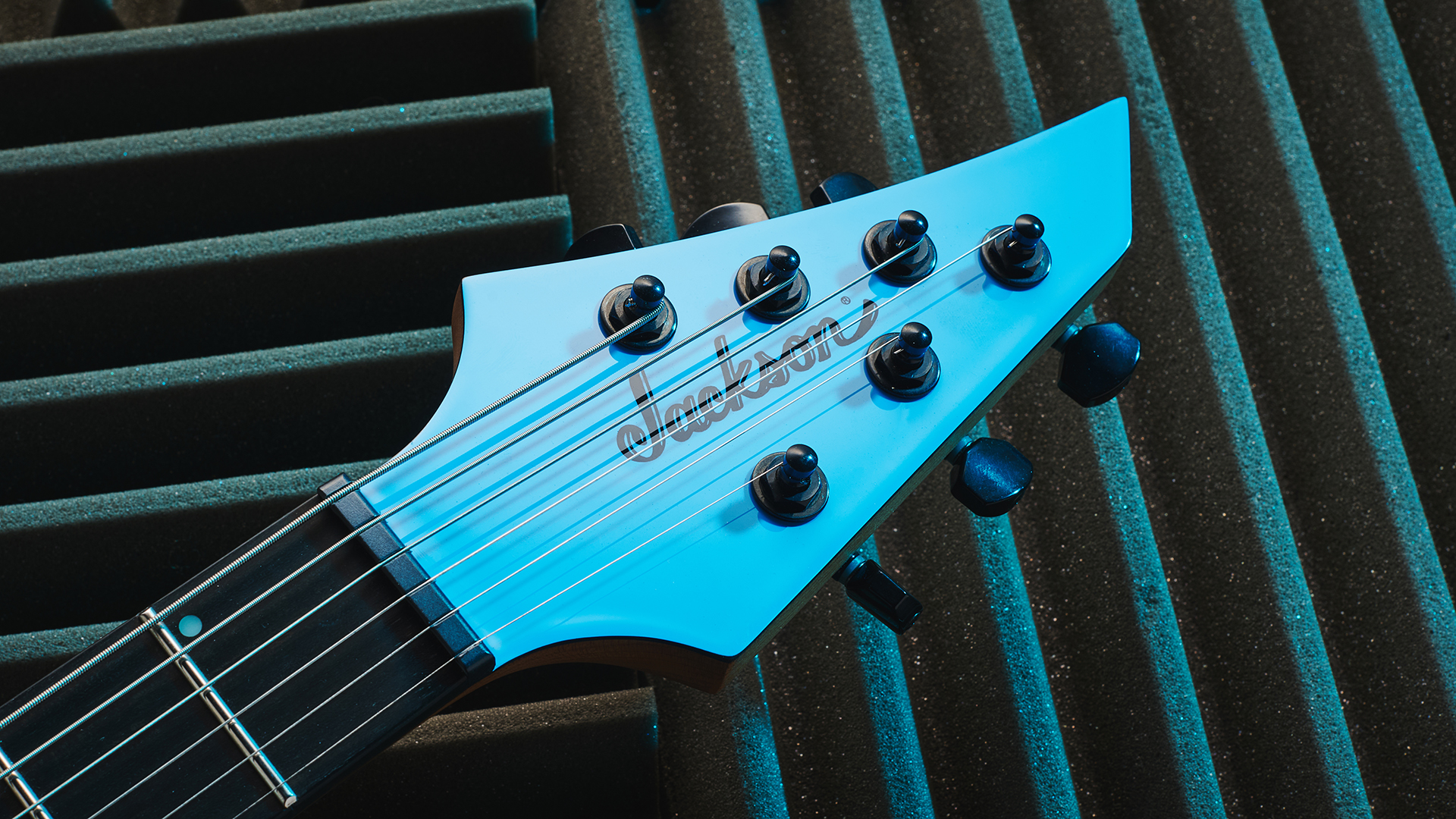
In terms of hardware, the centerpiece is the EverTune F6 bridge, which offers a fresh approach to guitar bridge design. It’s paired with a set of Jackson locking tuners in an offset 3×3 mounting on the headstock I’ve heard referred to as the ‘Smurf hat’, but it gives me more chipped ancient spear vibes.
The pickups are Jackson’s own brand, but have been designed with a lot of input from Misha, presumably to keep the cost down because Misha’s own signature Bare Knuckles would add a lot to the overall price. There’s a push-pull knob on the tone control to unlock extra tone options alongside a 5-way blade switch, so there are plenty of sounds available for the progressive part of prog metal. The guitar also comes with a Jackson Soloist/Dinky gig bag.
Specs
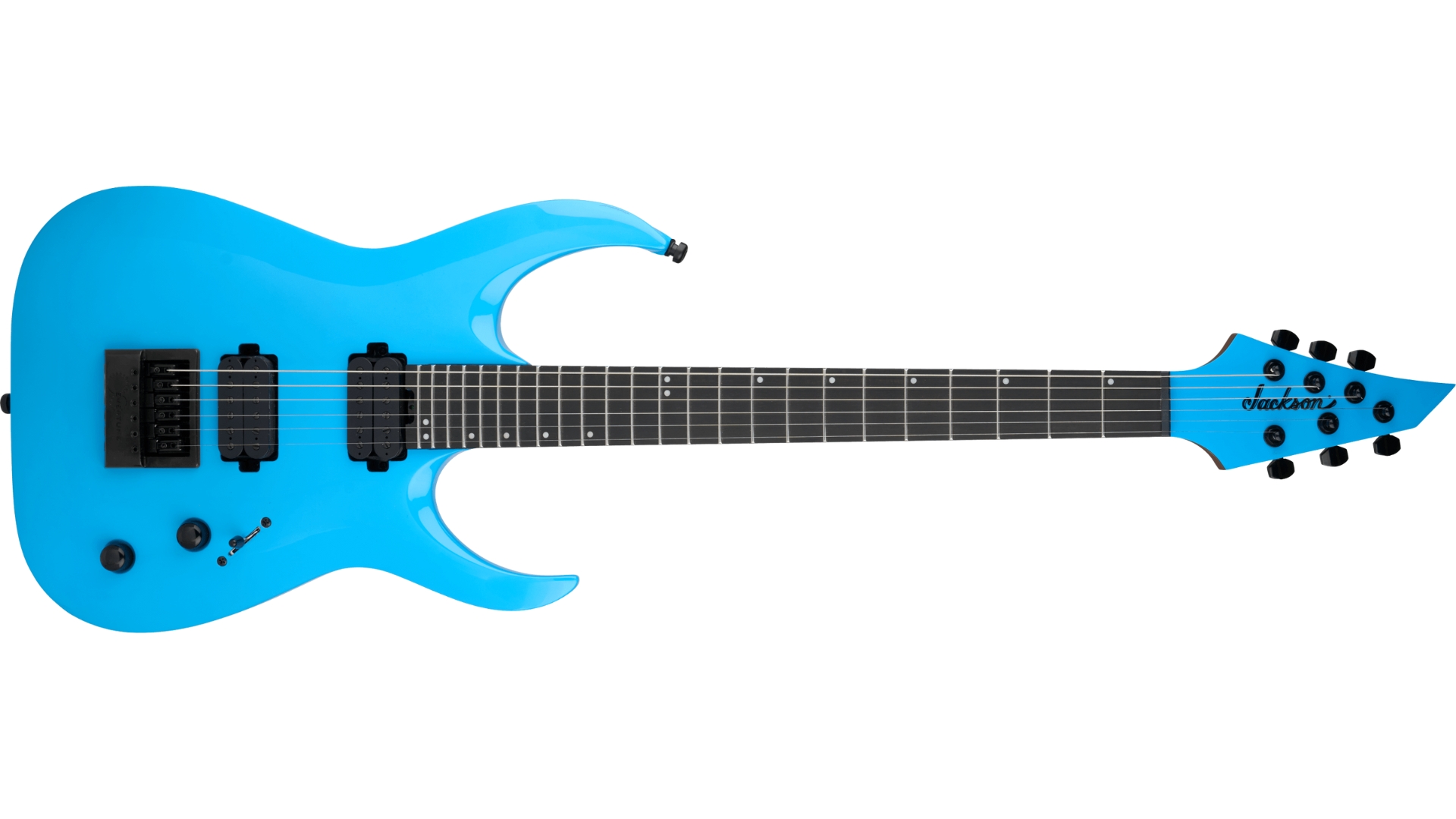
- Launch price: $1,469.99/£1,399/€1,499
- Made: Indonesia
- Type: Six-string electric guitar
- Body: Poplar
- Neck: Caramelized maple
- Fingerboard: Ebony
- Scale length: 25.5″ (64.77 cm)
- Nut/width: Black plastic, 42.86mm
- Frets: 24, jumbo stainless steel
- Hardware: Jackson sealed die-cast locking tuners, EverTune F6 Model bridge
- String spacing at bridge: 50mm
- Electrics: 2x Jackson Uncovered MM1 humbuckers, volume, tone controls with push/pull, 5-position blade switch
- Weight: 7.71lbs/3.5kg
- Options: N/A
- Left-handed options: No
- Finishes: Riviera Blue (as reviewed)
- Cases: Jackson soft gig bag
- Contact: Jackson
Build quality
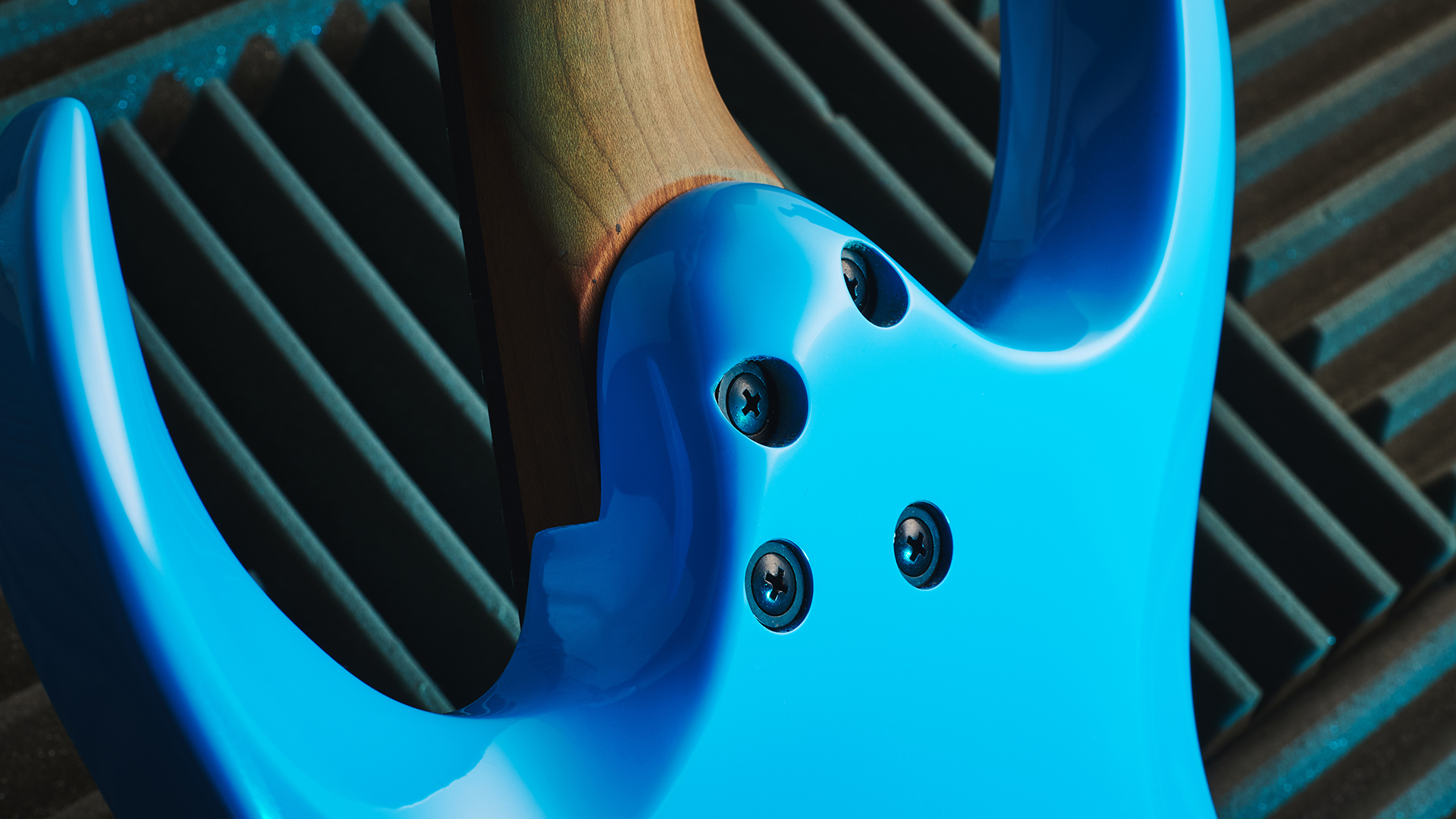
Build quality rating: ★★★★½
Unboxing the Jackson Pro Plus Juggernaut I’m immediately struck by the Riviera Blue finish which looks more than a little pop-punk to my eye. Examining the guitar in detail I can see it’s been immaculately applied everywhere, apart from some small bits of wood showing through the holes where the neck bolts are.
The fretwork is superb, with the fingerboard edges nicely rolled and feeling smooth across both sides and it’s a similar story with the inlays and side dots which are applied to perfection. There’s no slack in the neck join with the sculpted heel meeting the neck perfectly, although a very close look did show some slight roughness on the treble side, only visible with my face right up to it.
The hardware is all solidly applied, with the big block of the EverTune bridge sitting perfectly straight, the switches and knurled knobs all feel rock-solidly installed, with no hint of movement. Overall, it’s really well put together, and apart from some tiny cosmetic blemishes I find nothing else to complain about.
Playability
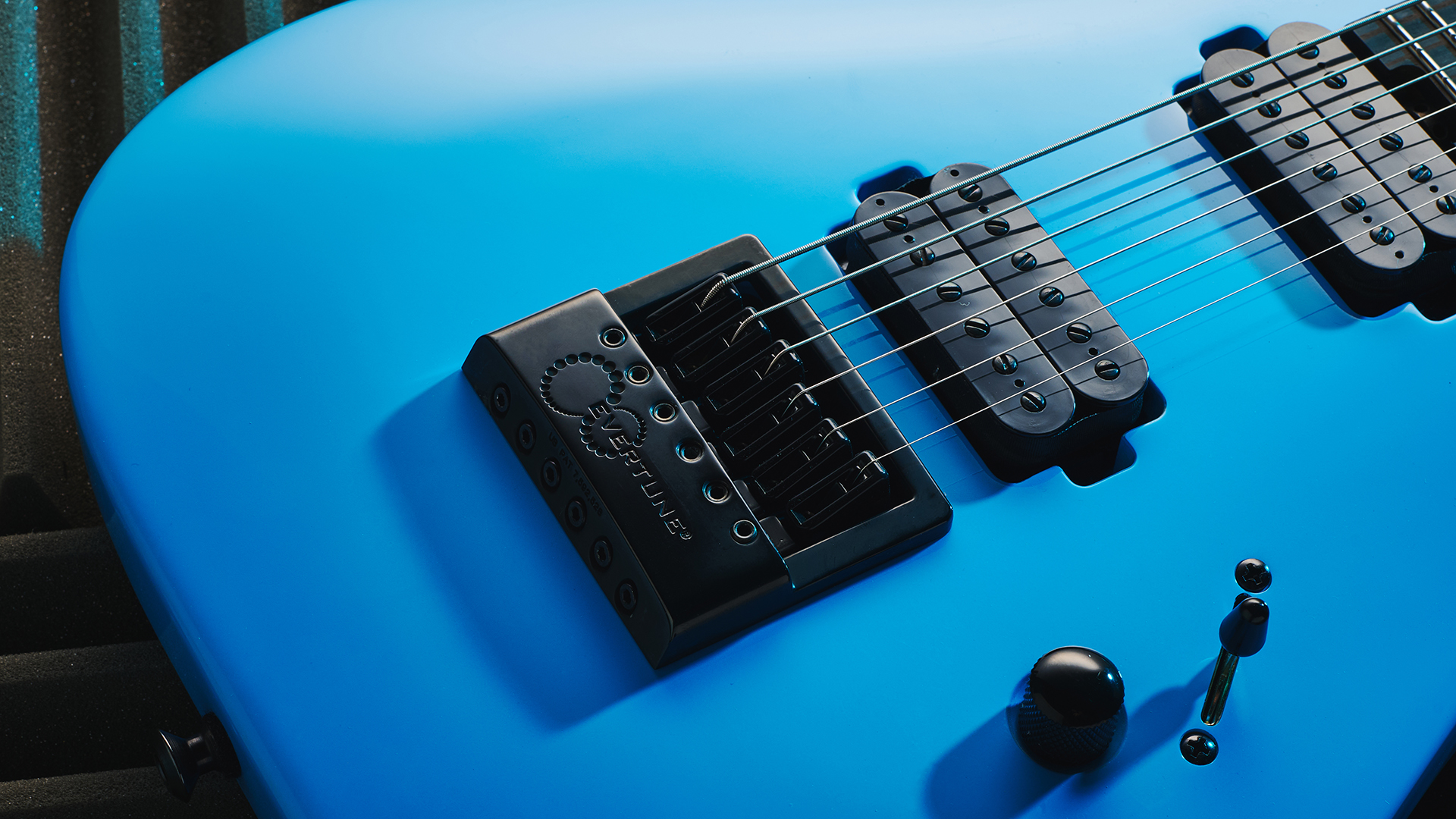
Playability rating: ★★★★½
I can really lay into it, switching between chugging and fast lead work without ever feeling like I’m pushing it too hard – a really amazing experience.
Sitting down to do an initial playtest, the guitar is out of tune, and for the first time ever, I have to read the manual for a guitar to find out how to get it where I need it. Handily Jackson includes an EverTune-specific manual in the box, which explains clearly how to get it up and running.
EverTune bridges are design to hold your guitar in tune no matter what the atmospheric conditions, no matter how hard you bend or fret the strings, nor how long you play it. It’s entirely passive too, so once set you don’t need to do anything else to it. There are two modes, one that keeps the strings perfectly tuned, even if you bend them, and a second mode that allows you to bend and use vibrato, but returns the strings to perfect pitch.
I start by returning the guitar to its factory tuning of Drop C via the included hex key, much as you would tune a Floyd Rose with the micro-tuners at the bridge end. With the guitar in ‘zone 2,’ I can play as hard as I want without the strings ever sounding like they’re even a smidge off perfect pitch. It’s an unfamiliar feeling, one that takes me a little while to get used to.
My usual arsenal of prog metal licks become surgical in their precision, perfectly in tune even as I dig in as hard as possible with my right hand. It almost feels like cheating it sounds so good, and it’s a similar feel when I play barre chords or dig into some power chords with my thick gauge pick. My playing style features a heavy right hand, so much so, that I typically tune my strings ever so slightly flat so they sound in tune when I play, but that’s not required here.
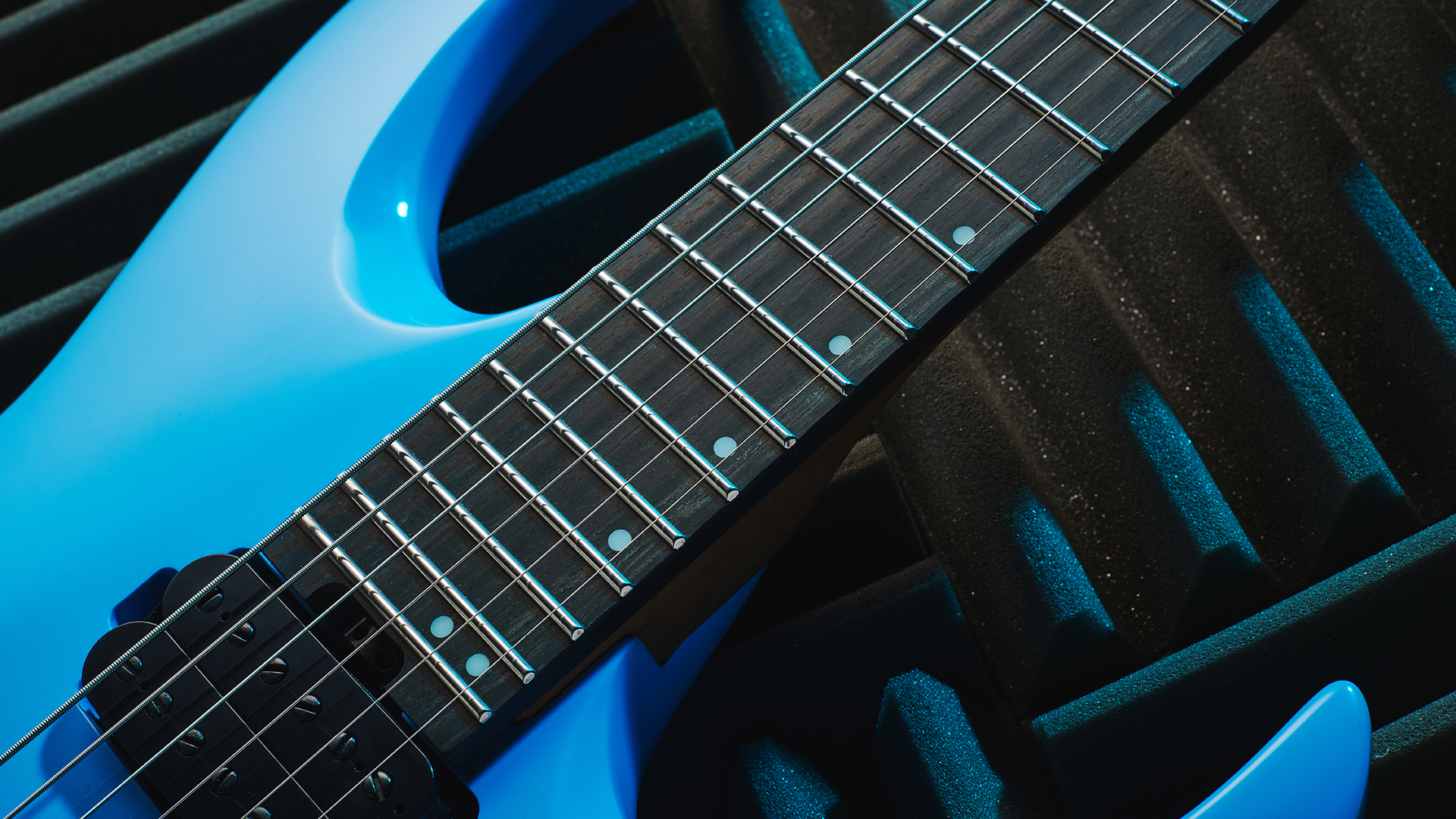
It’s not often I get a guitar that completely blows me away with how it plays, but using the EverTune bridge is quite unlike anything else I’ve ever tried. It’s much simpler to set up than a Floyd Rose and stays in tune way better than any locking tremolo system I’ve come across. Once I get over the initial weirdness of all my licks being perfectly intonated, I can see how good of a tool it would be for any player, let alone regularly recording and gigging musicians like myself.
Moving the EverTune into bending mode however, is a much less smooth task. Here I need to take the string outside of ‘zone 2’, which involves turning the tuning machine until it starts to go sharp (called ‘zone 3’), before moving it back into ‘zone 2’. The idea here is you can bend and vibrato as normal, but the string always returns to perfect pitch.
Unusually, the push-pull tone knob doesn’t access any coil splitting, instead, it removes – or rather engages – the tone knob from the circuit entirely.
I follow the instructions the manual presents, but I can’t get it to feel the same as my regular guitar. I play with moving the guitar between ‘zone 2’ and ‘zone 3’ over the course of an hour or so to try and find the right balance, but it always feels slightly alien. I find I can adjust my playing style to compensate, as I might do moving from guitars with different string gauges, but particularly with vibrato, I need a lot more time to get accustomed to how it reacts.
The overall playability of the guitar is fantastic in terms of fingerboard and neck feel. As you might expect coming from Misha Mansoor it’s absolutely rapid, feeling to my hand like a ‘D’ profile shape. Combined with the fact that it’s difficult to pull the string out of tune I can really lay into it, switching between chugging and fast lead work without ever feeling like I’m pushing it too hard – a really amazing experience.
Sounds
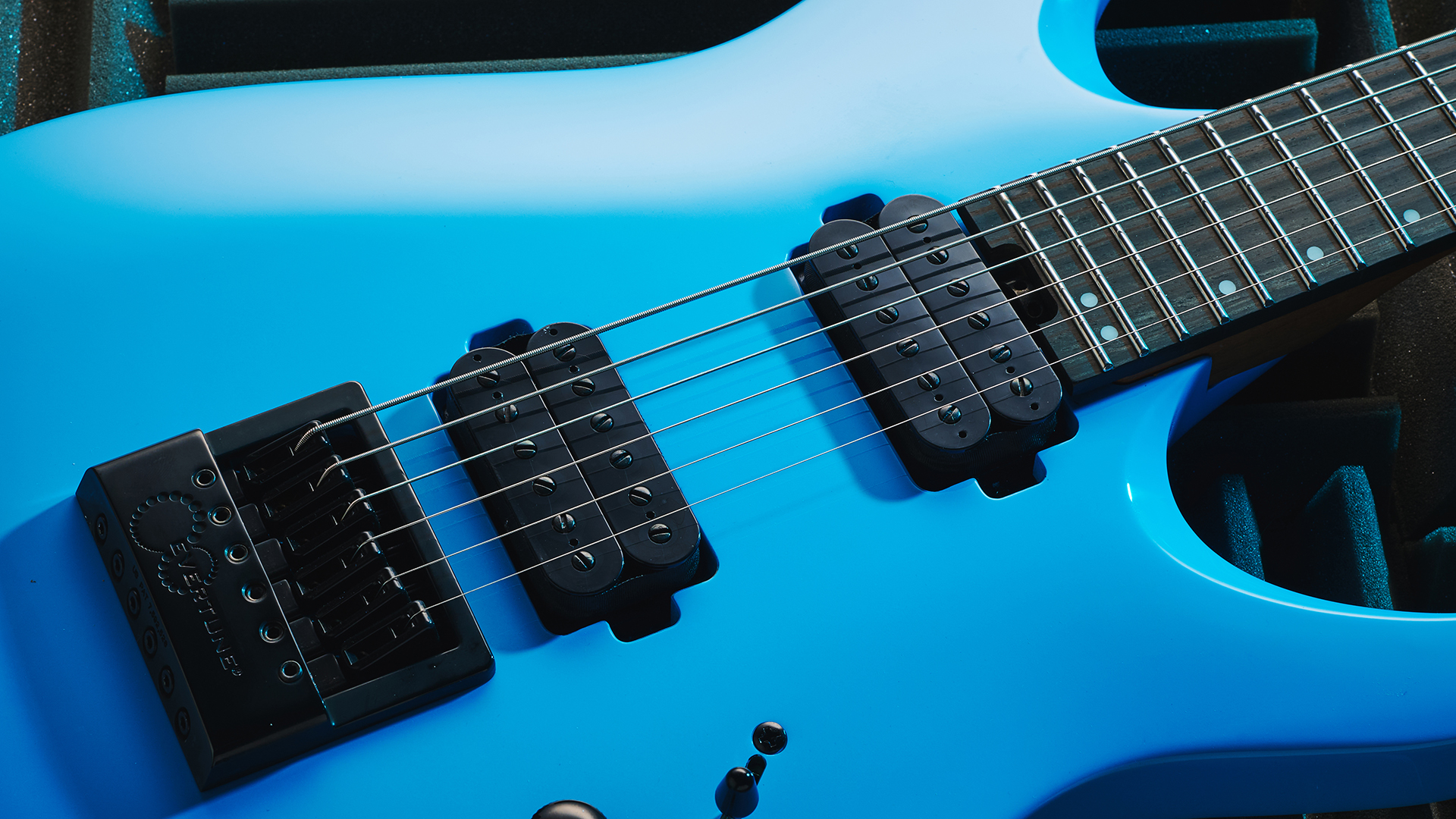
Sounds rating: ★★★★½
As I expect, the pickups are seriously hot when I play through the gain channel of my Orange tube amp. It’s modern metal through and through, with a rich saturation that’s articulate and has a nice bit of low-end oomph to it. It stays clear even when I play open chords and open up the gain knob, and sounds great as I switch between chunky riffs and chord stabs with open strings higher up the neck.
Moving to the bridge position it’s a similar tale, but slightly backs off the gain for a warmer tone. It’s not exactly a vintage humbucker though. I find a searing sound that’s a little woolier with open chords in the lower strings, but still retains a nice clarity on the treble side of the spectrum. Lead licks sound thick and warm but still give plenty of ability to cut through a dense mix.
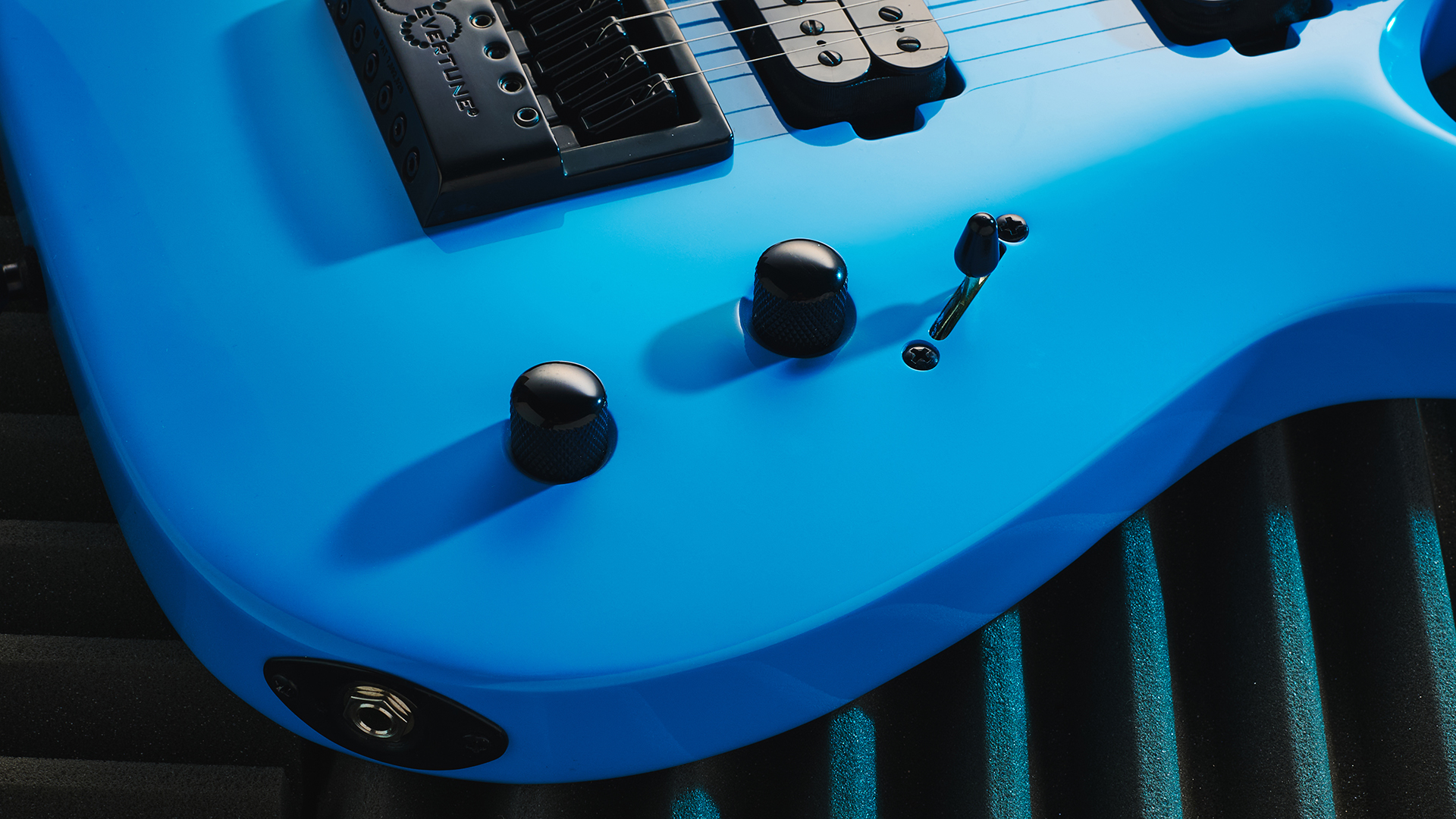
The in-between positions surprise me a little with just how spanky they sound. They’re very Strat-esque and great for that overly compressed modern prog metal clean tone. Paired with some of my tapping licks I get a really percussive sound in position 2, and something slightly warmer in position 4, which quickly becomes my favorite of the in-between positions. There’s a nice volume jump from these voices to the main humbucker too, which I find really useful for moving from a clean verse to something more rip-roaring in the chorus.
Unusually, the push-pull tone knob doesn’t access any coil splitting or tapping, instead, it removes – or rather engages – the tone knob from the circuit entirely. That’s because by default, the tone control is bypassed, so pulling the control out engages the tone circuit.
It’s a subtle difference, and I have to repeatedly switch between the two positions to really notice the change, but with the tone knob removed from the circuit, it sounds brighter and to my ear, a little harsher. I end up preferring having the tone knob in the circuit on my clean amp sound, but I find I can get some cool tonal changes by dialing the tone knob back and swapping between the two different positions, bringing the guitar from a duller tone to something more direct.
Verdict
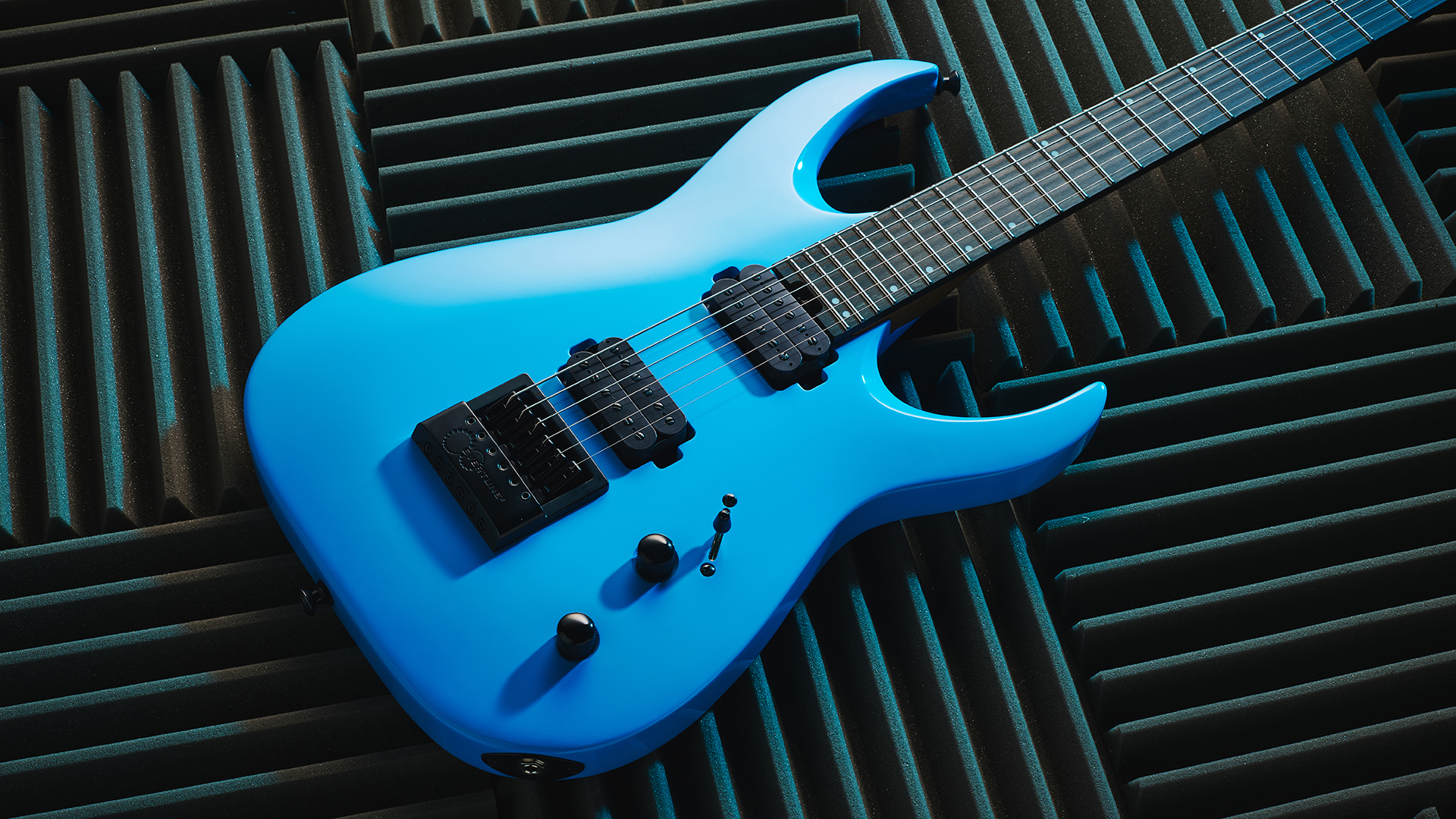
I’ve reviewed a lot of guitars over the past few years and the Jackson Juggernaut ET6 is something that really is quite different from the rest. I love the player-centric features like the unusual push-pull tone control, great selection of pickup sounds, ergonomic body feel, and super fast playing neck, but it’s the EverTune bridge that really makes it special.
I can totally see how once set up properly this guitar can be an incredibly powerful instrument for studio and live playing thanks to the bridge. It makes it a precision tool for modern metal, a well-honed surgical blade for the studio, and a guitar that can get the average player closer to the pristine sounds of modern production without needing a boatload of takes and editing to get there.
Guitar World verdict: If you want a guitar to cover all the sounds of modern and progressive metal with the clinical accuracy of a djent breakdown, the Jackson Pro Plus Series Signature Misha Mansoor Juggernaut ET6 is totally worth the money. It delivers a superb array of tones for heavy playing and the lighter stuff, and the tuning stability and intonation of the EverTune bridge really needs to be played to be believed.
|
Test |
Results |
Score |
|---|---|---|
|
Build quality |
Perfectly put together with some tiny cosmetic hiccups |
★★★★½ |
|
Playability |
Plays incredibly, but that EverTune will take some getting used to |
★★★★½ |
|
Sounds |
Delivers plenty of oomph and versatility for prog metal, but not for traditionalists |
★★★★½ |
|
Overall |
One of the best guitars for modern metal I’ve ever played |
★★★★½ |
Also try
Hands-on videos
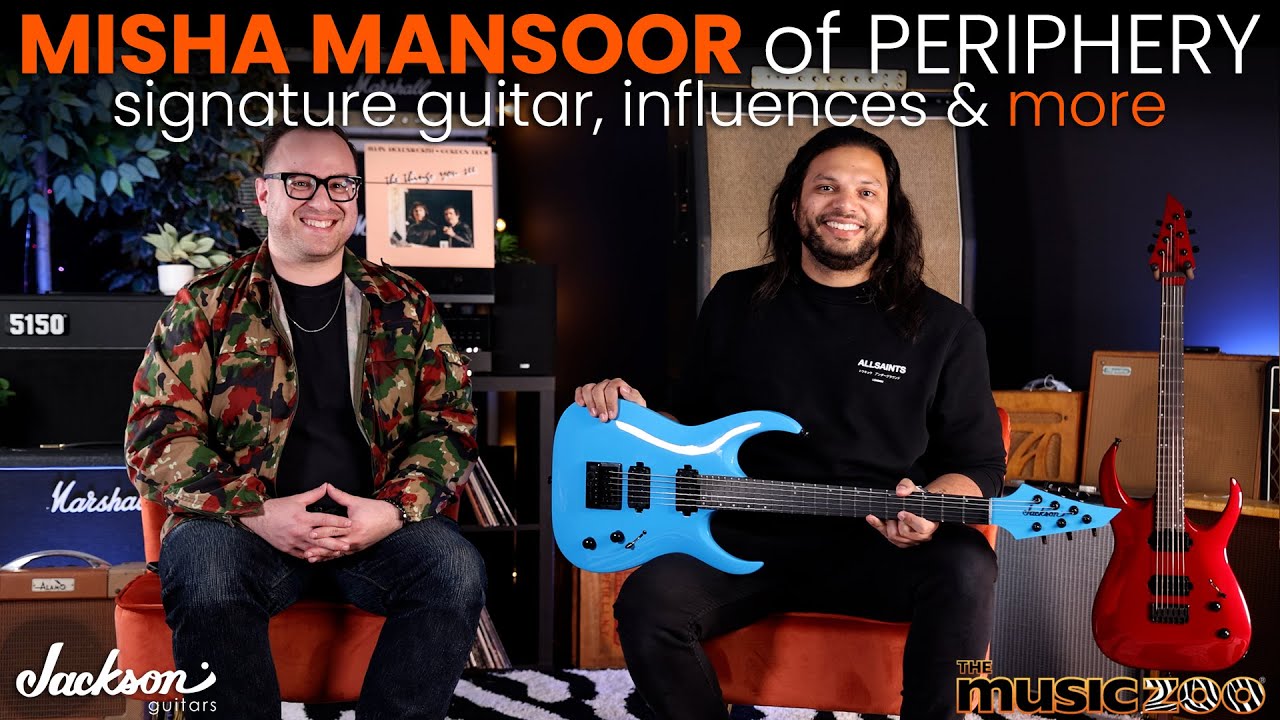
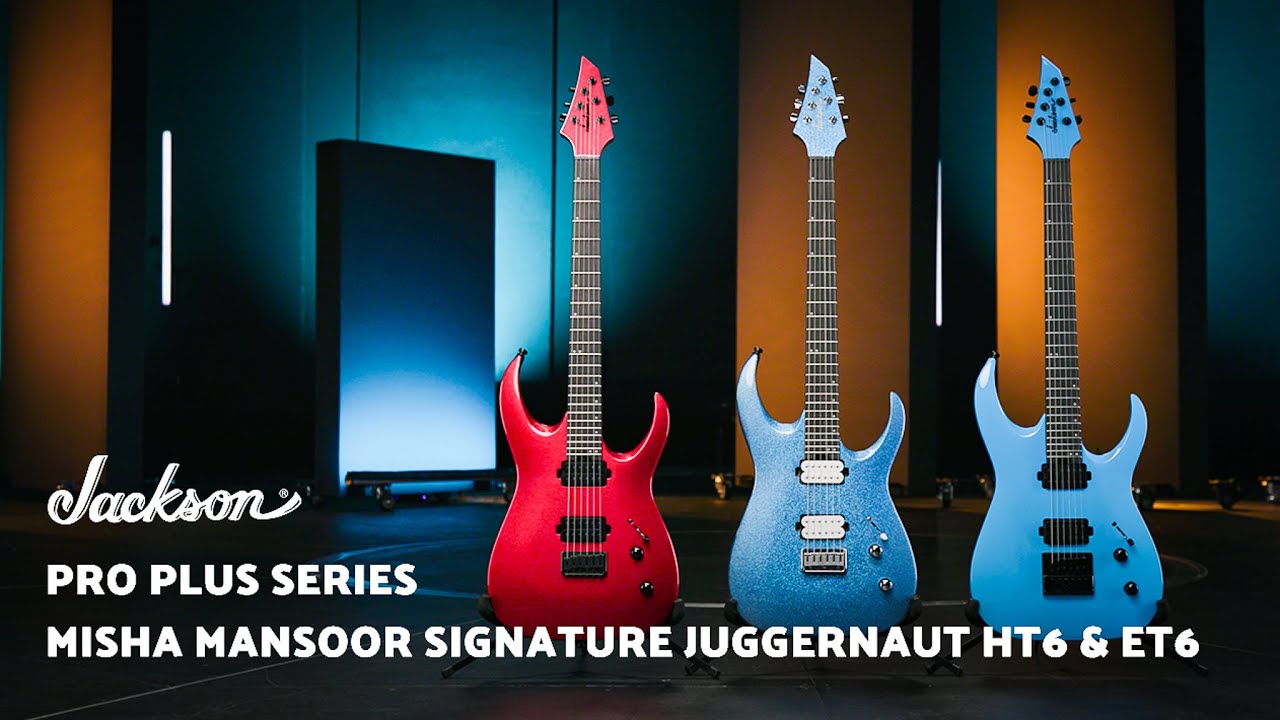
GIPHY App Key not set. Please check settings